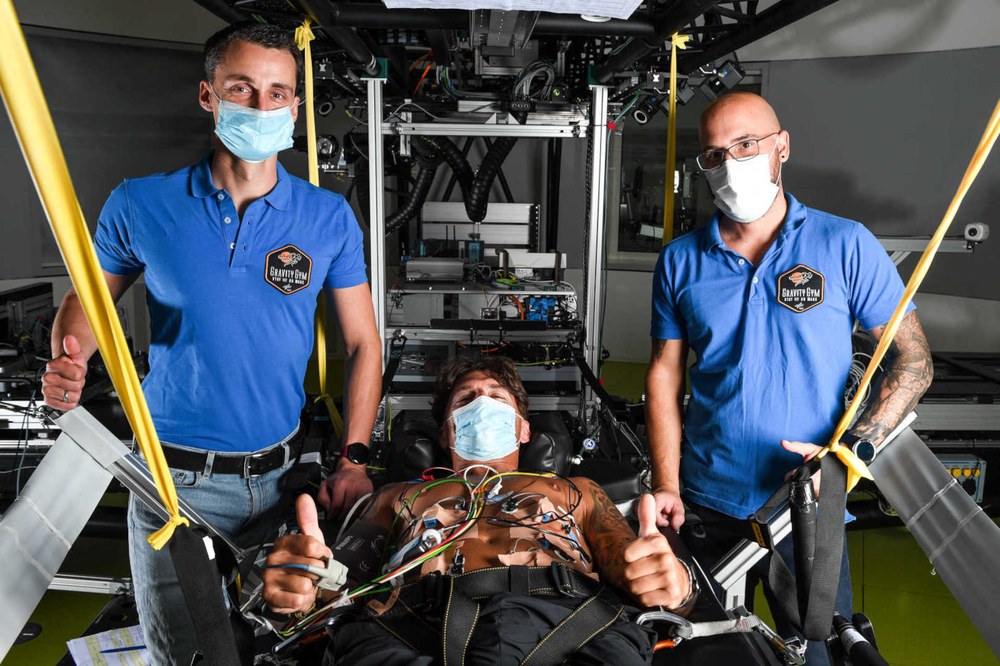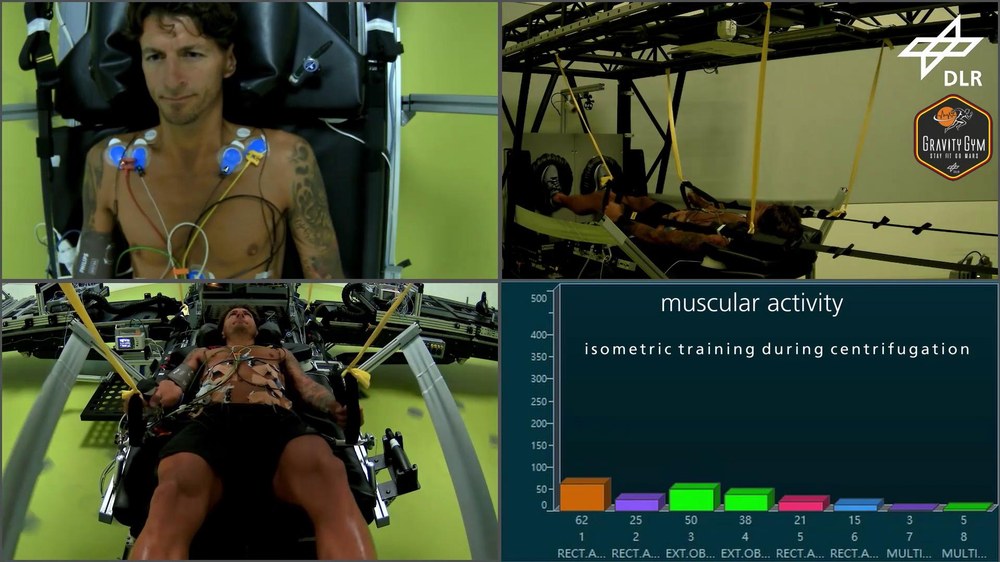Training under artificial gravity



- The GravityGym pilot study aims to acquire initial insights into the feasibility of training routines under artificial gravity. These could, for example, be used in the same or a similar way in the future to maintain the fitness of space crews during a Mars mission.
- Focus: Spaceflight, medicine
Astronauts are just like normal people; regular physical training and sufficient exercise contribute significantly to their health. Lack of exercise quickly leads to a loss of quality of life and performance. But the absence of gravity can accelerate these processes for astronauts. This is why space travellers need to exercise a lot to prevent the loss of bone mass and degradation of their muscles. Artificial gravity may help to improve this training considerably. What gravity workouts along these lines might actually look like is currently being investigated using the short-arm human centrifuge at the German Aerospace Center (Deutsches Zentrum für Luft- und Raumfahrt; DLR) in Cologne.
Negative effects of weightlessness
Weightlessness causes gradual bone loss and muscle atrophy in humans. Legs are particularly badly affected because, unlike the constant stress they are under on Earth, they are hardly ever used in space. In addition, the cardiovascular system and metabolism can change, and mental performance may also be impacted.
The combination of artificial gravity generated by a centrifuge and specific training methods could be used to develop new measures to mitigate the negative physiological effects of weightlessness. This would preserve human health during long-term space missions.

Centrifuge training under increased gravity
Your consent to the storage of data ('cookies') is required for the playback of this video on Quickchannel.com. You can view and change your current data storage settings at any time under privacy.
Training plan
The GravityGym I pilot study by the DLR Institute of Aerospace Medicine is a ground-breaking project to investigate how targeted training of the abdominal and back muscles affects muscle activation and biomechanics. The study will also obtain data on subjective impressions during centrifuge operation; that is, under increased gravity. The GravityGym study has now started with 12 athletic men and women after adapting the test conditions to the hygiene requirements of the ongoing pandemic.
Their task seems simple at first glance; participants are given elastic straps and sling trainers and instructed to perform particular exercises to strengthen the abdominal and back muscles while the centrifuge is rotating. But selecting suitable exercises was not easy. The DLR Centrifuge Team led by Timo Frett and the ESA Space Medicine Team consisting of Nora Petersen and David Green tested on themselves a training concept that accounts for the physical conditions during centrifuge operation. For instance, movements of the head and shoulders should be avoided to prevent nausea and dizziness, especially among inexperienced test participants. This resulted in a mixture of exercises borrowed from physiotherapy, weight training and Pilates. The exercises are now being tested for effectiveness.
All trial participants were first required to undergo a rigorous medical check-up and are wired up for monitoring during centrifuge operations. Monitoring measurements include muscle activity in the abdomen and back, as well as heart rate, subjective perception of stress and the thickness of the intervertebral discs.
The aim of this pilot study is to obtain initial insights into the feasibility of training under artificial gravity, which could be used in the same or a similar way in a space environment to keep space crews fit, for example during a mission to Mars.
The research team working on the GravityGym project plans to test many other training methods, such as mounting a rowing ergometer or a treadmill on the centrifuge.
